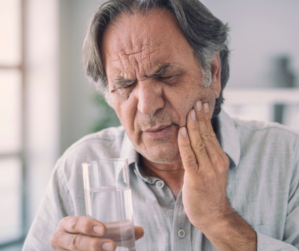Oral health is not only essential to look and feel great but also necessary to reduce the risk of developing depression. Wondering how teeth and gum health can lead to mental issues? Read further to learn more about this topic.
How can Dental Conditions contribute to Depression?
Dental issues can cause depression, or if someone is already suffering from it, oral health can worsen it. There are two major reasons for this. The first thing is that discolored, crooked, or damaged teeth can make a person insecure with their body. Severe dental issues like periodontal disease and missing teeth may encourage an individual to become socially awkward and isolated.
Though this is obvious, there is one more subtle reason for the depression and oral health connection. When a depressive individual consults doctors, health experts might prescribe them antidepressants. These medications can help you improve your life significantly, but they can adversely impact teeth and gum health. Many of these drugs lead to dry mouth or xerostomia, which leads to gum disease, tooth decay, and bad breath.
Signs of Depression That Will Show in Your Oral Health
General Dental Neglect
People struggling with depression usually ignore their oral health, resulting in a decrease in dental hygiene. This can cause tooth decay, gum disease, and other issues. If you stop flossing and brushing regularly, you will develop cavities and gum diseases.
Periodontal Disease
Depression can influence your dental health through the salivary glands. When your glands produce less saliva, it can lead to tooth decay. Many people with periodontal disease can develop depression symptoms because of the inflammation occurred due to periodontitis.
Dry Mouth
A dry mouth is a common sign of depression. When you have a dry mouth, you cannot produce saliva. This can lead to several issues, including:
- Cracked lips
- Difficulty speaking and eating
- Bad breath
- Burning sensation in the mouth
- Increased risk of gum disease and cavities
Oral Pain
Many patients with chronic pain from conditions like TMJ or temporomandibular joint disorders also experience depression. This can be simply because of feeling hopeless and worrying whether you can ever get rid of the pain.
Tips to Improve Oral Health to Prevent Depression
Here are a few things you can do to prevent your mind from worrying about your dental condition and impacting your mood.
Consult a Dentist
The simplest and easiest way to cope with your situation is to discuss your mental state and reason with your dentist. Though they are not psychological experts, they can give you the best advice to manage your issue.
Eat Veggies and Fruits
Healthy food will not offer you nutrients for good oral health but also lower the risk of depression symptoms. The best part is that you can incorporate them into your diet in multiple ways.
Brush Twice a Day
Clean your teeth twice a day to keep them healthy. Also, make sure to floss daily to remove hidden food particles between your teeth.
Bottom Line
Dental problems can lead to depression. To help offset this, give our office a call today to schedule a consult.


